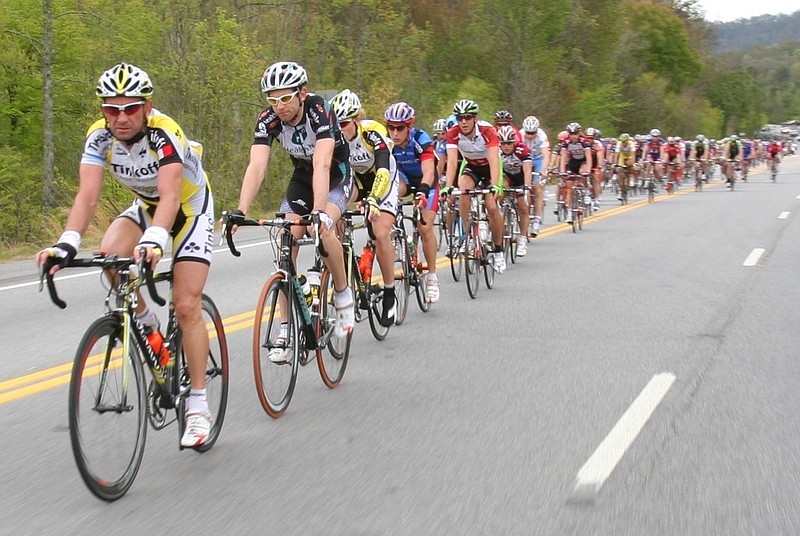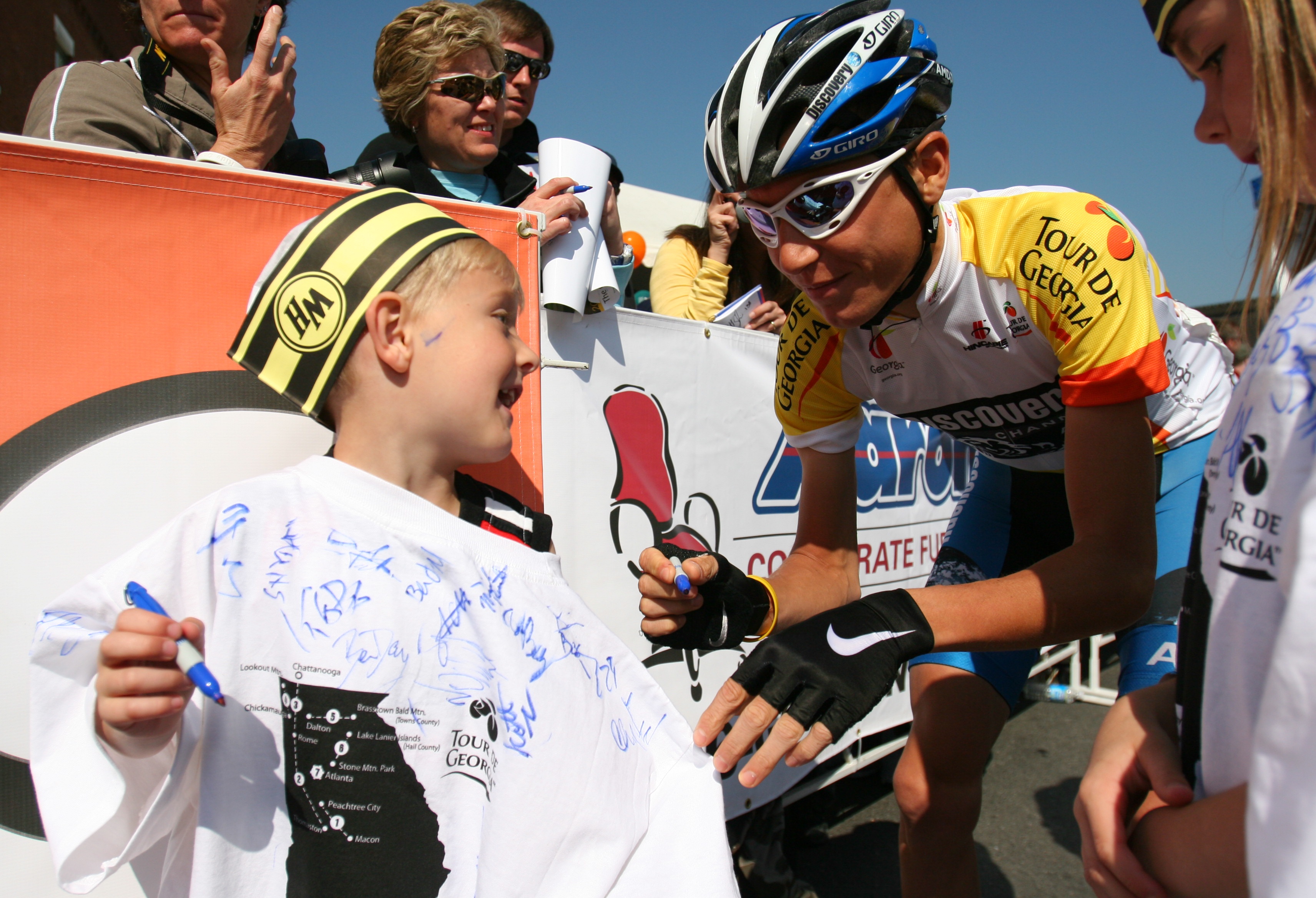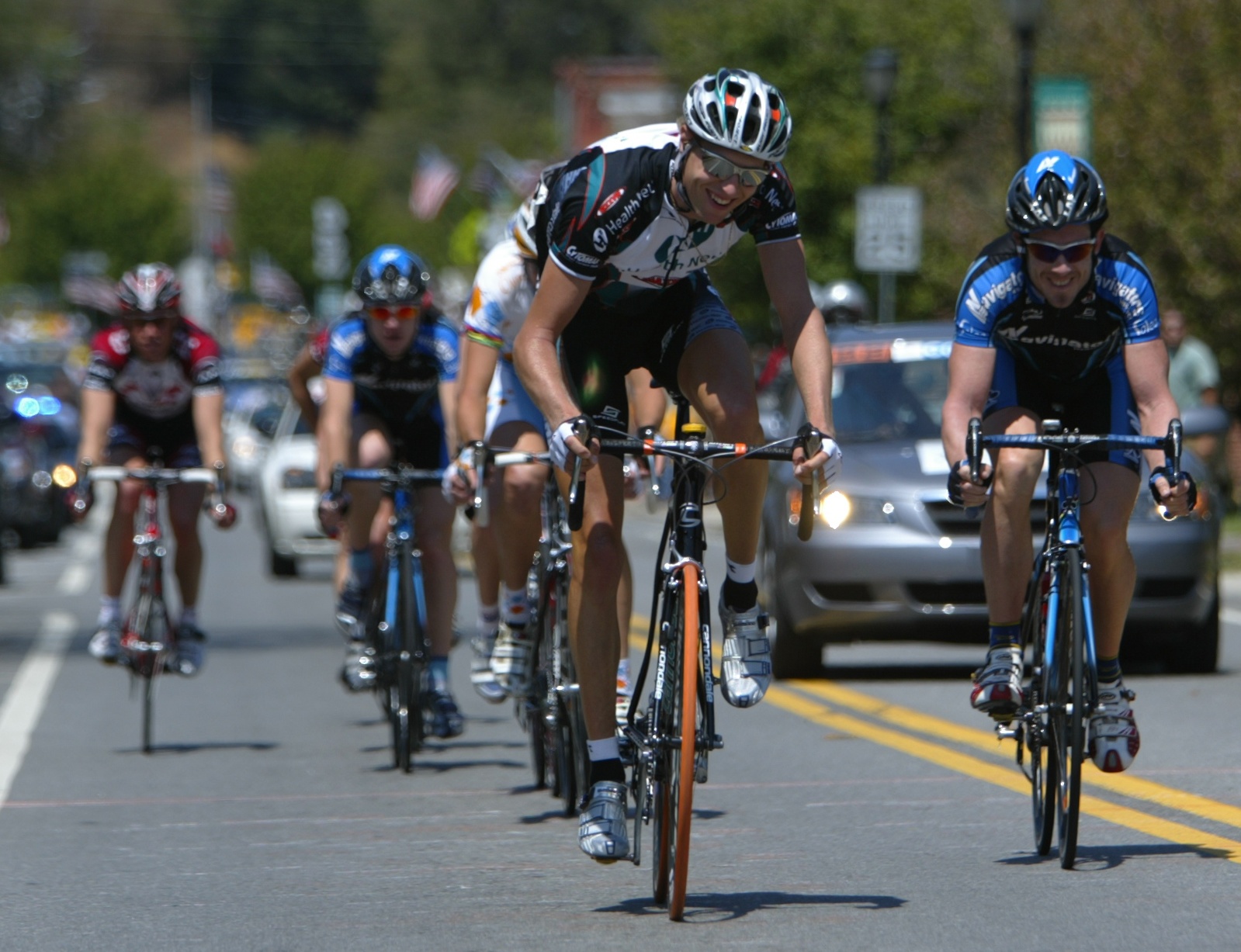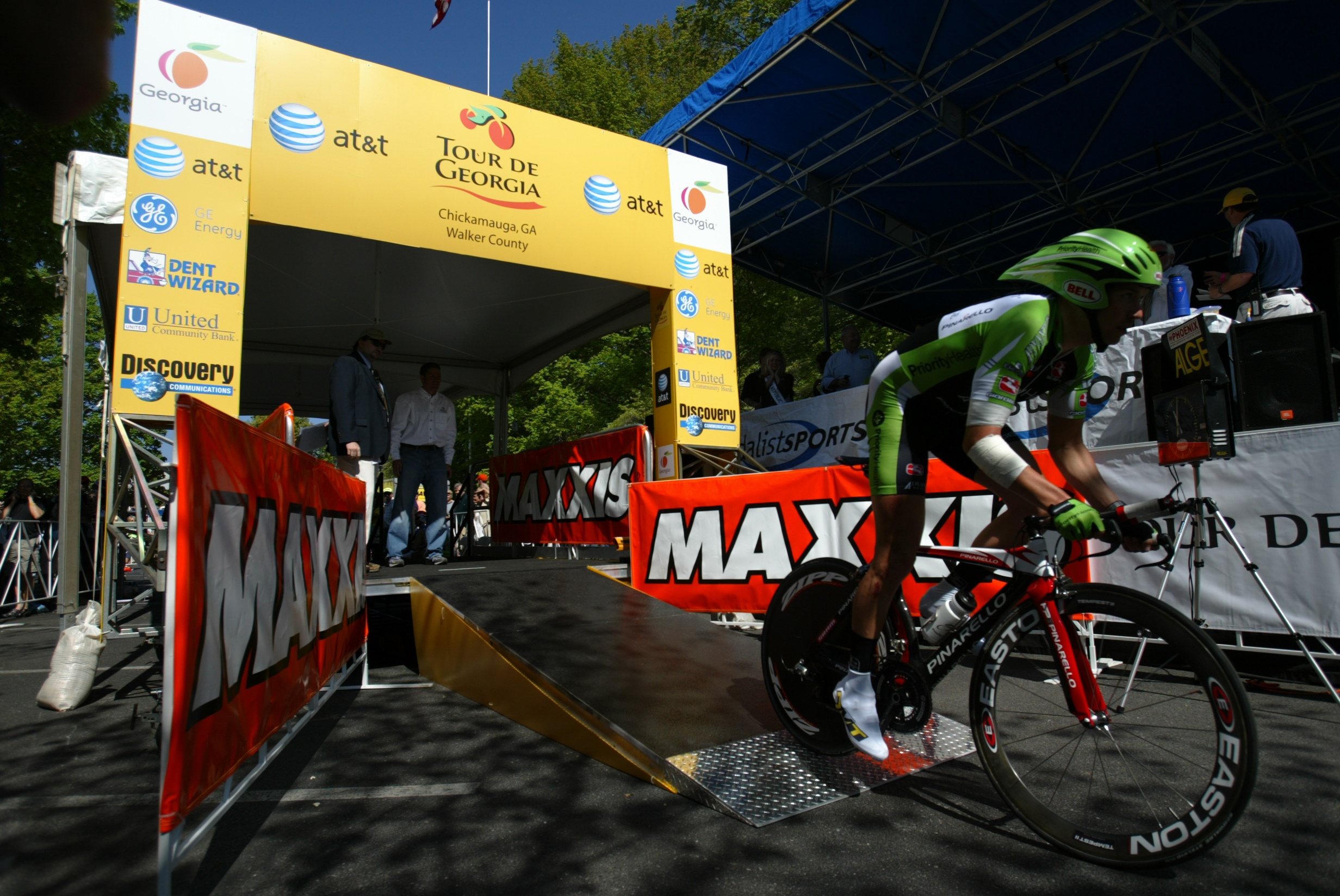Lance Armstrong challenged riders up the daunting Brasstown Bald to Georgia's highest point in the 2004 Tour de Georgia. Cycling legend Jens Voigt was close behind, racing Armstrong and chasing the local team's Cesar Grajales, who had broken away and taken a surprising lead.
The three men were well ahead of all other racers, cycling in front of tens of thousands of raucous fans partying on the mountain, waiting to catch a glimpse of the riders. Armstrong and Voigt were competing for the overall race victory, while the Colombian was hoping to claim a shocking stage win for the Georgia-based Jittery Joe's team.
He did, and with that the second annual Tour de Georgia captivated the cycling world. It had the underdog story on the race's penultimate and most daunting stage. It had Armstrong taking the overall win against one of his biggest rivals. It had scenic views, a challenging course and one of the toughest climbs in North America.
The race was held the next four years with millions of people in attendance. More than a half million people went each year, and it was promoted as America's premier cycling race. It wheeled through hundreds of miles of the Peach State and crossed into Tennessee up Lookout Mountain and into Chattanooga. America's most famous racers, Armstrong, Levi Leipheimer, Floyd Landis, George Hincapie and others found success in the race.
Then the event stopped.
What started as a one-year hiatus after the 2008 race for organizers to find a new sponsor turned into a decade.
It raises the question, will the region ever see another major professional cycling stage race?
Impact on region
The 2006 tour alone had a direct economic impact of $26 million to the Georgia economy, according to the race's website. However, it came with a cost. A race of its caliber costs about $1 million per day to put together, according to USA Cycling. That meant sponsors were needed to front the money.
"As we see with a lot of the events across the country, it's more a monetary consideration than anything else," USA Cycling Vice President of Operations Chuck Hodge said. "That's why Tour de Georgia eventually went away. It was just a funding issue."
Hodge is a true Southerner, he said. He lived in Greenville, S.C., until this year and has spent time in Chattanooga during the Tour de Georgia and the U.S. Cycling Professional Road Championships. He praised the region and said he hopes to see cycling remain strong in the area.
The race originally was sponsored primarily by Dodge. When it pulled its sponsorship after the 2005 race, Ford fronted the money for a year before AT&T sponsored the final two years of the event. The state of Georgia and other regional, local and national companies sponsored the race, but after AT&T pulled its sponsorship, organizers never found a replacement.
It wasn't for lack of trying. Race directors spent years searching for a title sponsor, and there were rumblings the event would come back in 2011. But nothing came of it, and the event has been dormant.
The only major professional cycling stage races in the U.S. take place in California, Utah and Colorado. The Southeast, despite its steep mountains and welcoming cities, isn't represented on the world cycling stage.
Dalton, Ga., was one of several cities to play a major role in the Tour de Georgia. The race wheeled through its streets most years, and the city is hoping for another chance at hosting another grand event.
"Honest to goodness, if I had a dollar for every time someone asked if Tour de Georgia is coming back, I think I could retire," said Ann Hortman, director of Rome Sports. "We'd love to have it back, but who knows? I never say never. I have wishful thinking."
Cycling in region
Although it's been years since a grand-style tour wheeled through the region, Chattanooga and the surrounding area have experienced an outdoors events and cycling boom.
There are renowned places to mountain bike, hike, cycle, trail run, climb, hang glide and take part in just about any outdoor recreation activity not requiring sub-freezing temperatures. Since the end of the Tour de Georgia, the area has hosted nine Ironman events, including the world championships; one of the biggest rowing regattas in the world, annually; the U.S. Pro Cycling Road Race Championships, three times; and other major outdoor events.
"When opportunities present themselves or we have targets we want to go after, if everything aligns itself and makes sense for our community, we will definitely pursue it," Chattanooga Sports Committee President Tim Morgan said.
Chattanooga and the surrounding area also are known for regional events.
The city hosts a well-known regional cycling event, already - the River Gorge Omnium - that brings in high-level racers from across the Southeast.
"The Southeast, particularly Chattanooga, has fantastic roads, the public agencies have been great to work with and the community, in Georgia and Tennessee, have been supportive of various events," Hodge said. "There's some really good expertise in the region."
Will an event like the Tour de Georgia ever come back?
The Tour de Georgia had been one of the biggest cycling race in the U.S. Now, there are additional hurdles in place that would make another event like it difficult.
The Tour of California and Tour of Utah have solidified their place in the cycling calendar, and the Colorado Classic is growing thanks to a unique format and active cycling community.
It could be tough to squeeze another U.S. race into the calendar. But that doesn't mean it's impossible. Once again, it comes down to funding.
"Is it likely? Well, I think people really do want to see that come back on a variety of fronts," Hodge said. "Right now, to my knowledge, there is not a group actively pursuing making that happen. That said, if a sponsor or another entity is interested then I think the area is right for hosting another similar stage race in the future."
Any major race likely would go through or near Chattanooga due to the city's resources, image as a great host city and terrain.
The city has long actively worked to bring in major outdoor events, and the possibility of another major cycling event would be something city officials would consider.
"What it boils down to is we operate off of a model that looks at the potential economic benefits of hosting an event and the potential marketing benefits," Morgan said. "And then we look at how that correlates with the community both positively and negatively."
The future of bike racing
Week-long races with stages nearing 150 miles are being replaced by shorter, more action-packed races featuring more climbs and smaller teams. The Colorado Classic experimented with the new racing style with success. Even the Tour de France is adapting. The 2017 race featured stages with the short, punchy race days aimed at spreading out the main field and forcing riders to attack.
"I think there's a place for both in the future," Hodge said. "The shorter, more dynamic races are crowd-pleasers. If you're a fan, you're not sitting for hours to see racers come by for one minute."
Union Cycliste Internationale, cycling's governing body, made a decision to shrink team sizes for the upcoming racing season, a decision it says was safety related. Many in the cycling community aren't convinced. Smaller teams can provide parity. In a sport dominated by big-budget teams like Great Britain's Team Sky, fewer racers means fewer top riders those big-budgeted teams can bring. Shrinking team sizes also increase the odds that cyclists will become isolated from their teams during races.
"I'm interested to see how UCI's smaller team decision will impact things. I'm really interested to see how that plays into a team being able to control the race now," Hodge said. "Really, though, the sport needs to be exciting and dynamic to keep the fans and the sponsors."
Contact staff writer Mark Pace at mpace@timesfreepress.com or 423-757-6659. Follow him on Twitter @themarkpace and on Facebook at Chattanooga OutdoorsTFP.



